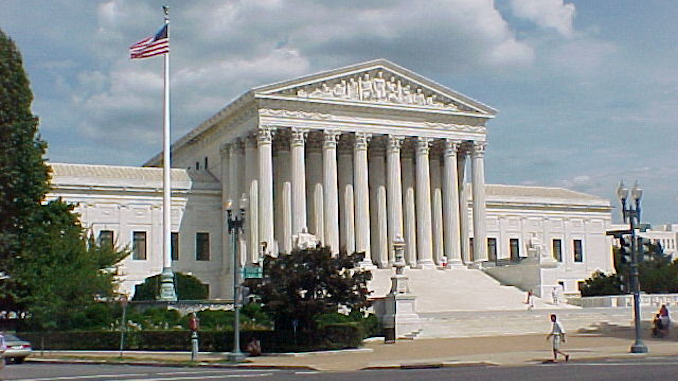
By Donald Jeffries
Whatever worthy intentions might have been behind affirmative action, the overt favoritism of one group over another has fomented further division in an already fractured society. As critics pointed out early on, how is it just to discriminate against others in order to reconcile past discrimination? As George Orwell might have said, some discrimination is more equal than others.
The Supreme Court is set to hear two lawsuits brought by the nonprofit group Students for Fair Admissions. The group contends that using race as a factor in college admissions is unconstitutional. They specifically allege that Harvard’s admission process discriminates against Asian-Americans, and that the University of North Carolina (UNC) discriminates against both Asian-American and Caucasian applicants. By focusing on Harvard and UNC, they are challenging such policies at both private and public institutions. Lower courts have rejected such arguments, upholding the right of colleges to consider race as a factor in admissions, in order to promote “diversity.”
The Supreme Court’s record on Affirmative Action is inconsistent. They have declared that racial quotas for admissions are illegal. However, they supported a University of Michigan policy in a 2003 ruling, stating that race can be considered as a “plus factor” in admissions. In their most recent decision, in 2016, the Supreme Court rejected a white female’s suit against the University of Texas in a 4-3 ruling. With three new justices appointed by Donald Trump joining Samuel Alito, Clarence Thomas, and John Roberts, who all voted in favor of the applicant in that 2006 case, opponents of affirmative action have reason to be cautiously optimistic.
Students for Fair Admissions wants the 2003 ruling overturned, and argues that Title VI of the U.S. code prohibits federal funding recipients from using race as an admission factor. “We are grateful the Supreme Court accepted these important cases for review,” Edward Blum, president of Students for Fair Admissions, stated. “It is our hope that the justices will end the use of race as an admissions factor at Harvard, UNC and all colleges and universities.”
In a November 2021 press release, which announced the petition to the Supreme Court, Blum explained:
Every year, thousands of college applicants have been subjected to unfair and unconstitutional racial classifications and penalties by our nation’s most competitive institutions. These polarizing practices—which a significant majority of all Americans oppose—must end as soon as possible. The cornerstone of our nation’s civil rights laws is the principle that an individual’s race should not be used to help or harm them in their life’s endeavors. We hope the Supreme Court will use the Harvard and UNC cases to begin the restoration of the colorblind legal covenant that holds together Americans of all races and ethnicities.
George Mason University Professor Ilya Somin wrote:
This litigation highlights a number of long-standing flaws in the “diversity” rationale for racial preferences embraced by previous court decisions and adopted by colleges around the country. The Harvard case also features extensive evidence indicating the school’s admissions system specifically discriminates against Asian-American applicants—not just by comparison with other racial minorities but even relative to whites. In the Harvard case, the Supreme Court will for the first time consider this increasingly troubling aspect of affirmative action policy.
Back in 2017, the Dartmouth Review chronicled the unfortunate history of Affirmative Action:
After much “shutting up and listening” and “educating themselves,” most conservatives should now be able to accept the fact that institutionalized racism does indeed exist—in the form of the practice called “Affirmative action.” With the luxury of hindsight, we can reflect on affirmative action’s toll on society, and see the transformation of a practice which started as an admissions policy into an attack on the American way of equal opportunity.
The Review continued:
As a means of promoting diversity of thought, affirmative action has not only been unsuccessful, but has actually pushed college campuses further from that goal. The chaos on campuses in recent years stands as proof that a multicultural student body has not only failed to expand free thought, but has actually radically curtailed it. Dartmouth, for example, has been so overtaken by the mantra of multiculturalism that all that remains is groupthink. The Black Lives Matter protests remains the most visible instance of the with-us-or-against-us mentality. . . . Even students with moderate, nuanced views on black disenfranchisement found themselves accosted during finals week by BLM protesters. . . . Along similar lines, UC Berkeley, the original practicer of affirmative action, has become hostile territory for any dissenting speech. If you think Dartmouth has become more tolerant of ethnic cuisines in recent years, you’re probably right, but diversity of people has not facilitated diversity of thought.
The Supreme Court is expected to hear the case sometime in the fall of 2022, with a decision possibly not coming until after the midterm elections.




The challenge from “Asian-American” is no good and too late.